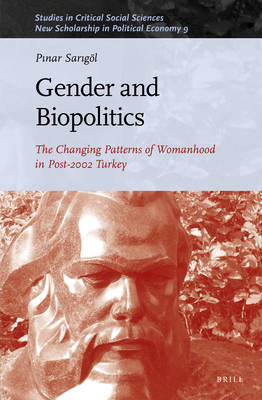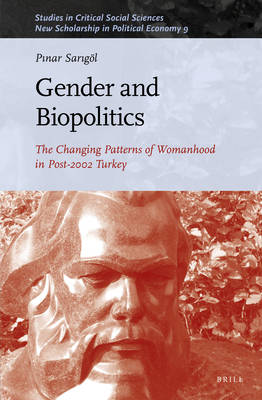
- Afhalen na 1 uur in een winkel met voorraad
- Gratis thuislevering in België vanaf € 30
- Ruim aanbod met 7 miljoen producten
- Afhalen na 1 uur in een winkel met voorraad
- Gratis thuislevering in België vanaf € 30
- Ruim aanbod met 7 miljoen producten
Zoeken
€ 293,45
+ 586 punten
Uitvoering
Omschrijving
In Gender and Biopolitics: The Changing Patterns of Womanhood in Post-2002 Turkey, Pınar Sarıgöl sheds new light on the life spheres of the woman as a means of uncovering neoliberal Islamic thinking with regard to individuals and the population. Informed by Michel Foucault's critical perspective, the governmental rationality of post-2002 Turkey's Islamic neoliberalism is examined in this volume. The tenets and merits of Islamic neoliberalism bring moral and religious practices into the discussion regarding 'how' the social order should be in general, and 'how' the ideal woman should be in particular. Islam and neoliberalism are well matched here because Islam takes society as a social body in which hierarchies and roles are divinely normalised. This book uniquely brings this point to the fore and draws attention to the interplay between the rational and moral values constituting Islamic neoliberal female subjects.
Specificaties
Betrokkenen
- Auteur(s):
- Uitgeverij:
Inhoud
- Aantal bladzijden:
- 256
- Taal:
- Engels
- Reeks:
- Reeksnummer:
- nr. 194
Eigenschappen
- Productcode (EAN):
- 9789004337398
- Verschijningsdatum:
- 21/10/2021
- Uitvoering:
- Hardcover
- Formaat:
- Genaaid
- Afmetingen:
- 155 mm x 235 mm
- Gewicht:
- 553 g

Alleen bij Standaard Boekhandel
+ 586 punten op je klantenkaart van Standaard Boekhandel
Beoordelingen
We publiceren alleen reviews die voldoen aan de voorwaarden voor reviews. Bekijk onze voorwaarden voor reviews.











